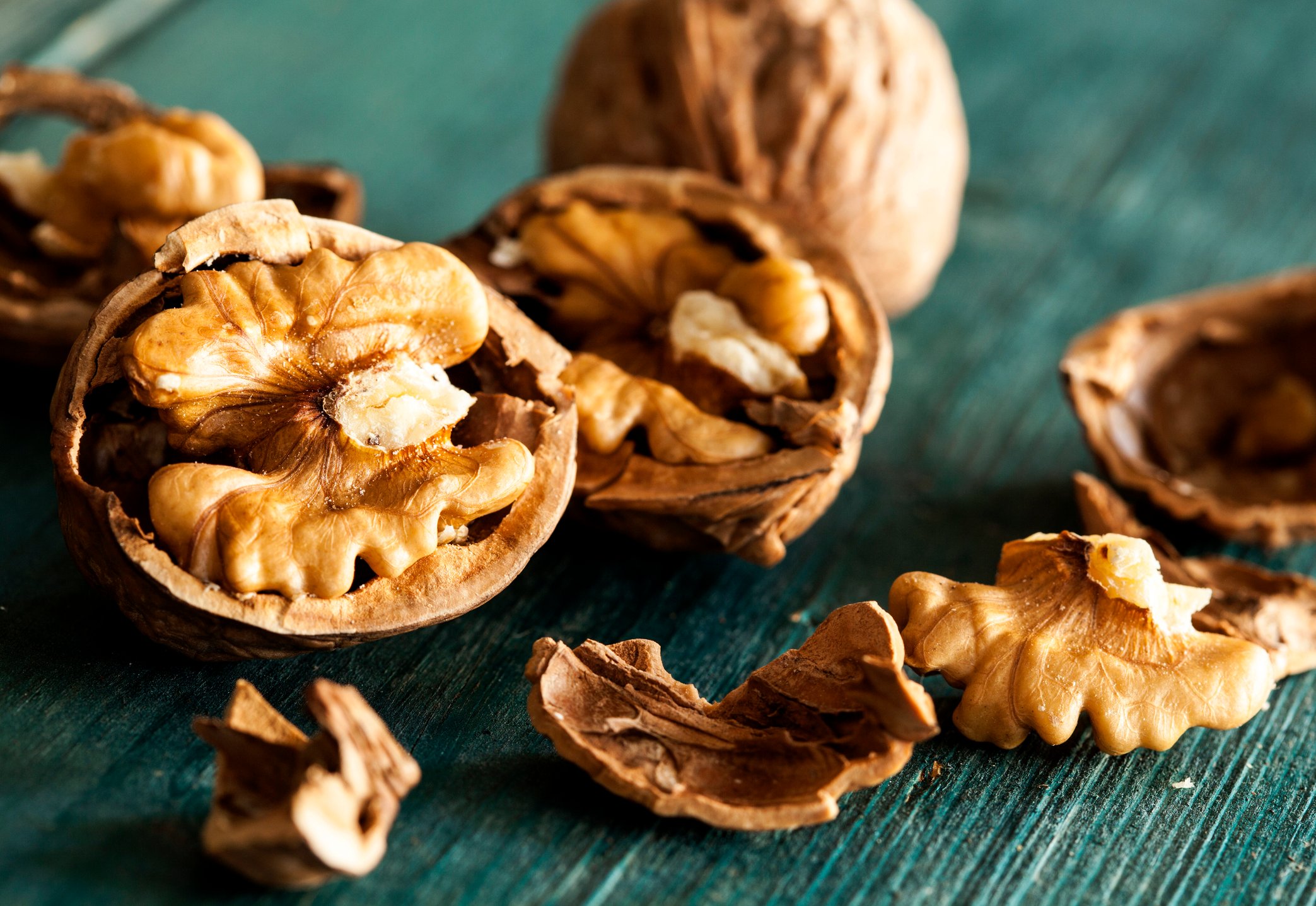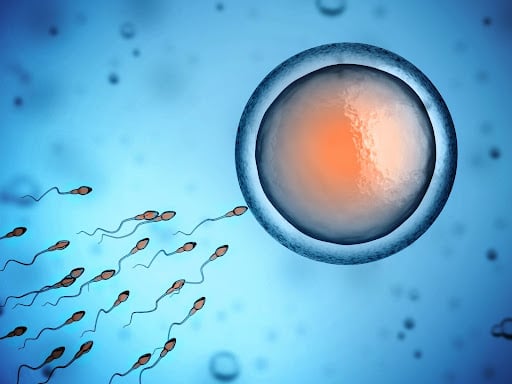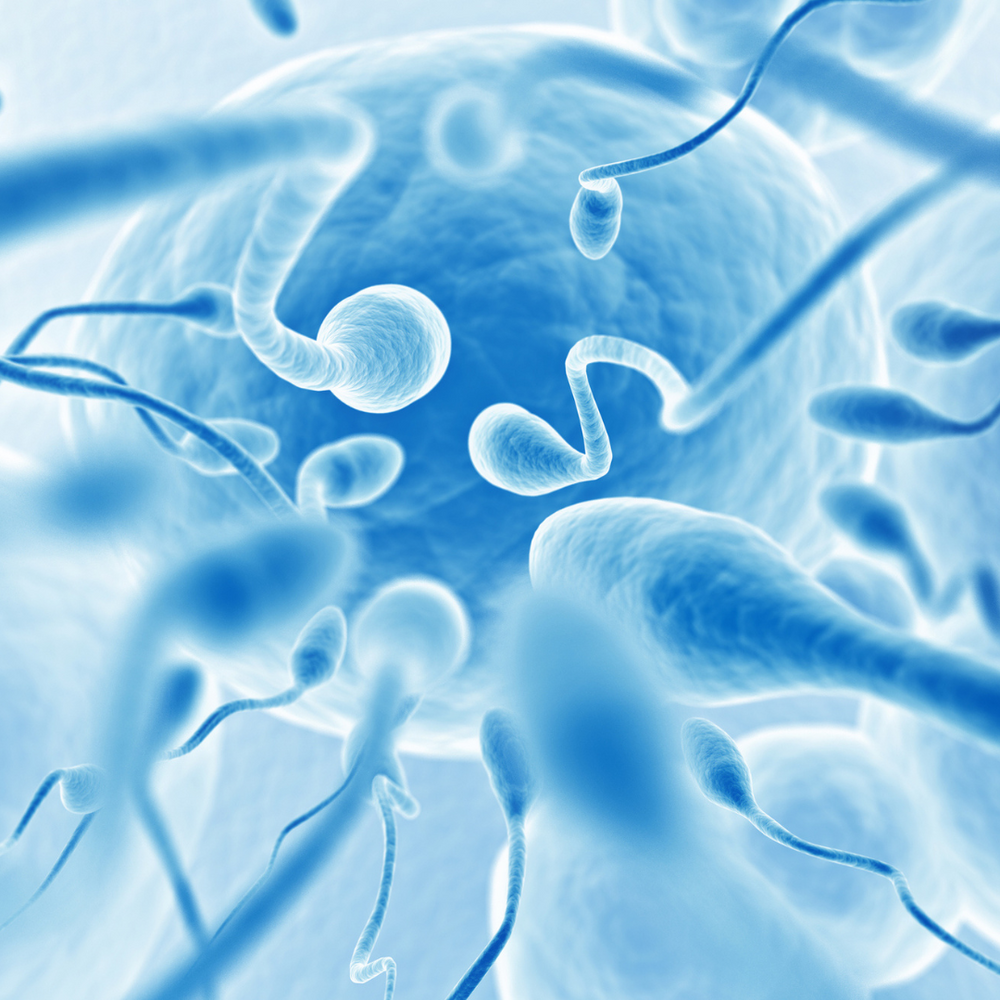Healthy sperm produced in sufficient numbers is the pinnacle of male fertility and the main focus of men and couples trying to conceive (TTC) and the health care professionals that may be supporting them through this journey.
This article will look at:
- What male fertility is
- The attributes of healthy sperm
- Tips to increase sperm count and health.
What is male fertility?
Male fertility involves several factors.
A man needs to produce healthy sperm in sufficient numbers (at least 15 million sperm per millilitre of semen).
This sperm not only needs to be able to move well (to ‘swim’ to the egg), but it also needs to be transported from the testicles, where it is produced, to mix with the semen and, then, be ejaculated out of the penis.
How to improve sperm count
Men’s sperm count, as well as the quality of their sperm, is directly affected, for better or worse, by their general health and lifestyle. These also influence a man’s sexual desire and performance and, therefore, his chances of becoming a father.
To improve sperm count and sperm health, men need to:
- look at their diet
- work towards a healthy weight
- keep their testicles in the ‘right conditions’
- ensure they have they are getting enough of the right micronutrients
- lower their stress levels
- do some form of exercise
- watch how much they drink
- avoid smoking, drugs and certain pollutants
1. Eat your way to healthy sperm

Men need good nutrition to achieve optimal health and boost their fertility.
A poor diet can affect fertility, disrupting men's hormonal function and causing problems related to the sperm’s quality and fecundability (sperm’s ability to fertilise an egg and result in a pregnancy), all of which can reduce their chances of conceiving.
Yet, it only takes a few changes to improve a man’s chances of becoming a father.
Adopting a Mediterranean-style diet - full of fresh fruits and vegetables, healthy fats, whole grains, fish, and seafood, with some poultry and dairy products and only limited quantities of red meat – has been shown to improve male fertility.
Where possible, choose organic produce to reduce pesticide exposure, which can affect sperm count and health.
A few simple changes can improve your chances of becoming a father.
2. Work towards a healthier weight
Obesity in men (a body mass index >30) has been linked to male infertility caused by poorer sperm motility, lower sperm count and erectile dysfunction.
This is believed to be related to high levels of oestrogen (one of the primary female hormones) caused by changes in testosterone, =excess body fat, changes in testosterone, and testicle temperature increases.
Regularly engaging in moderate exercise (you’re more likely to stick to it if you choose something you enjoy) and eating a balanced diet are critical to achieving and maintaining a healthy weight. Your GP can also help you reach a healthier weight.
3. Keep them loose, keep them cool

For optimal sperm production, testicles need to be kept cooler, which is why they hang from the body.
Men who wear tight underwear are more likely to produce less sperm that don’t move, as well as men who wear loose-fitting underwear.
The slight, yet significant, increase in temperature of the testicles caused by them being close to the body for prolonged periods is thought to be the cause of this.
Therefore, when improving your fertility, your best bet is to:
- keep your testicles cooler by having baths and showers at a lower temperature
- keep the area away from direct heat
- wear loose-fitting pants like boxer shorts
- favour trousers that give your genitals plenty of room
4. Eat your nuts

Research shows that eating 75 grams of walnuts per day improves sperm motility (their ability to move), vitality, and overall health.
Scientists also found that men who ate about two handfuls of mixed almonds, hazelnuts, and walnuts daily for 14 weeks had increased sperm volume and healthier sperm than those who didn’t eat the nuts.
5. Exercise!
Engaging in regular exercise results in improved sperm count and sperm health.
You are more likely to stick with it if you choose something you enjoy doing, so try different things and mix it up a bit to keep it interesting.
6. Stop smoking

Although at first glance through a microscope, sperm count and sperm health does not seem to be affected by smoking, when looked at in more detail, it becomes evident that the DNA in the sperm of smokers is much less healthy than that of non-smokers.
In smokers, the DNA carried in the sperm can be damaged, and this can not only increase the risk of miscarriage and lower the chances of conception, as the sperm isn’t working as it should.
For this reason, men are advised to give up smoking a minimum of 3 months before they start trying to conceive to allow the body enough time to rid itself of toxins and produce new sperm.
The NHS can provide information and a support plan for men wanting to stop smoking.
7. Enjoy a drink, in moderation
As long as men drink within the recommended guidelines - not exceeding 14 units per week* - and spread their alcohol intake through the week, alcohol is unlikely to affect sperm production or quality.
Binge drinking and/or regularly exceeding the recommended guidelines can cause problems, potentially affecting sperm quality, sex drive and performance. However, drinking socially - say, a glass of wine or a beer every night with dinner or in the pub – should not affect a man’s sperm production and may even help relax him and increase his desire for more regular sex
*14 units is equivalent to 6 pints of average-strength beer or ten small glasses of low-strength wine.
8. Supplement with essential vitamins & minerals

Whether through choice or circumstance, not everyone can eat a well-balanced diet. And some micronutrients are essential for the production of healthy sperm and to increase sperm count.
Optimal levels of the following vitamins and minerals are hard to achieve from diet alone, which is why supplementation is essential in improving male fertility.
- zinc
- selenium
- Co-enzyme Q10
- Siberian Ginseng
- vitamins B6 & B12
- vitamin C
- vitamin D
The expert team at My Expert Midwife has developed a fertility supplement for men using a natural, vegan and evidence-based formula to support and optimise male fertility.
Learn more about the benefits of male fertility supplementation here.
9. Quit drugs
Drugs such as cocaine, cannabis, and heroin can affect a man’s testosterone levels, sperm quality, and sex drive. It is known that regular exposure to cannabis smoke can lead to problems with sperm production, where sperm are not the right size or shape.
Anabolic steroids and some prescription drugs may also seriously affect sperm production and motility, so it is worth reviewing this with a doctor before men start trying to conceive.
10. Reduce exposure to environmental dangers
Men regularly exposed to chemicals such as glycol ethers, often used in paints, glues, or printing inks, can produce fewer ‘swimming’ sperm than men in other jobs.
Wearing appropriate masks with filters may help diminish the effects of these chemicals. Heating or cooling food in plastic containers can release harmful chemicals like BPA bisphenol, known to damage sperm, into the food. Glass, ceramic, or metal containers are safer.
11. Lower your stress levels

Feeling stressed and anxious profoundly impacts every aspect of your body and can lead to the release of hormones that can negatively affect sperm count.
Adrenaline causes reduced blood flow to your testicles which, in turn, results in decreased sperm production.
The following activities can all help lower and manage your stress levels:
- Regular exercise
- eating a balanced diet
- connecting with your mind and body through meditation and yoga
- getting enough sleep
- taking time off with your partner
- remaining playful
- seeking support from a mental health professional or support group
If trying to conceive is stressing you out, try to relax, have fun and enjoy your relationship without worrying or fixating on getting your partner pregnant. Casual sex that takes place naturally after being seduced is probably the best way to make a baby. You can learn more about your and her fertility in our Trying to Conceive Guide.
What determines sperm health?
When it comes to making babies and healthy sperm, we could argue that the quality of the sperm is just as important as the quantity, if not more so.
Sperm’s health and chances of success depend on three things:

-
Numbers – the more swimmers are ejaculated, the higher the chance one will reach the egg.
A healthy sperm count is above 15 million sperm per ml of semen.
- Movement – aka motility. You need sperm with good movement ability to increase their chances of getting to the egg.
- Size and shape – medically known as morphology.
Regardless of the number of sperm, if they are the ‘wrong’ size and shape, the odds of them navigating toward the egg successfully will be against them. For a man’s fertility to be optimal, he needs to produce lots of healthy swimmers that are the correct size and shape. The number and quality of sperm can be determined with a semen analysis.
Key Takeaway
You can do many things to help improve your sperm count.
Most of them are cheap or inexpensive and involve tweaking certain lifestyle factors and habits, ensuring you are getting the right micronutrients through diet and supplements, and learning more about how your body works and how to work with your body.
If you want more information and advice on increasing your sperm count and your partner’s fertility when trying to conceive, check out more of our blogs on preconception and download our guide to trying to conceive for free.




















